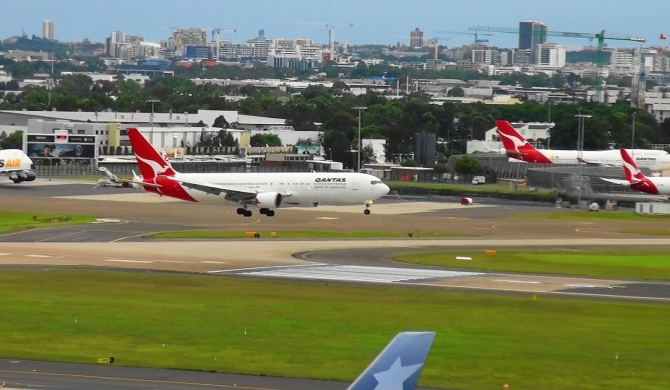Foreign airlines cut flights !

International airlines, including Emirates, have drastically pruned flights to Colombo while cargo carriers this week turned down point blank a proposal by the Sri Lanka Logistics and Freight Forwarders’ Association to consider taking rupee payments as the dollar crisis worsens.
Emirates has reduced its daily flights from four to two and Air Arabia has cut its flights from seven a week to four. Turkish Airlines and Fly Dubai no longer offer a “booking inventory”, which shows available seats) for Sri Lanka to travel agents. Kuwait Airways stopped operating in January while Singapore Airlines, too, has whittled down its schedule.
“There is high demand but less capacity which now means the prices will go up even further,” a travel agent said. “A shortfall in cargo capacity will also be a huge blow to various sectors.”
The crisis has been brewing for months with industry sources warning that foreign carriers will cut because general sales agents (GSAs) and local airline offices have for months fallen back on their dues–payable in dollars–to principals abroad. The payments include percentages of ticket sales or incomes from cargo space.
In the past, these were “instantly” remitted to the principals in foreign currency.
Meanwhile, Emirates SkyCargo, Singapore Airlines and Turkish Airlines are among the cargo carriers which wrote to Logistics and Freight Forwarders’ Association stating that they cannot consider taking payments in any currency other than the US dollar.
In a letter seen by the Sunday Times, Turkish Airlines has emphasised that as a foreign carrier operating into Sri Lanka it was “very important that we remit our local Cargo Sales to our Head Office on time to cover our operational cost”.
“We have operated 11/passengers flights and 03/freighters until last winter, uplifting average one million kilos per month,” it said. “With existing high yields into Europe/USA & Canada, you can imagine the amount of cargo sales money (in LKR) that is stuck here in Sri Lanka since last November 2021.”
“Further, with the ongoing daily fluctuation of LKR we are losing daily on these sales amounts and yet we have not been offered any solution or plan by the Central Bank,” it continued. “Considering above factors, we as a foreign carrier is compelled to invoice our customers in USDs in 100% [sic] effective 1st April 2022 and previous decision that was taken by the TK management on this subject will remain as it is.
“We are fully aware of your situation and it is very unfortunate that we could not help you at this juncture,” it concludes. Our HDW clearly instructed us to stop local cargo sales ex Sri Lanka [sic] if we are not getting paid on [sic] USDs. We have no choice rather than executive that [sic] has been received from our HDQ.”
A letter from Emirates SkyCargo to the Association states: “As you will appreciate, this unprecedented situation is evolving rapidly and Emirates SkyCargo is currently undertaking a full review of our Sri Lankan operations. As we have previously noted, the vast majority of our costs are dominated in US dollars, including fuel and the payments on our aircraft, and this puts substantial pressure on us to recover funds to sustain our operations to Sri Lanka.
“If we are unable to maintain timely repatriation of funds from Sri Lanka, our exit from the Sri Lankan market would have a significant impact on your members and the Sri Lankan economy,” it points out. “Unfortunately, Emirates SkyCargo will not be in a position to consider revising our current policies until our current Sri Lankan review is complete.”
The letter also says the company cannot commit to a timeframe for the review “given the fast-moving nature of the current situation”.
Singapore Airlines, meanwhile, has sent just a two-liner to the Association: “We will only be able to accept settlement of freight invoices in USD, effective from 1 May 2022 uplift date. Thank you for your support and understanding during these exceptional times.”
